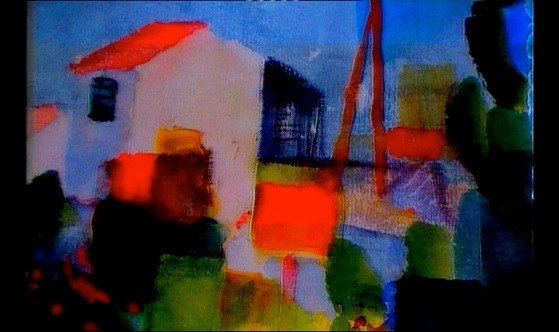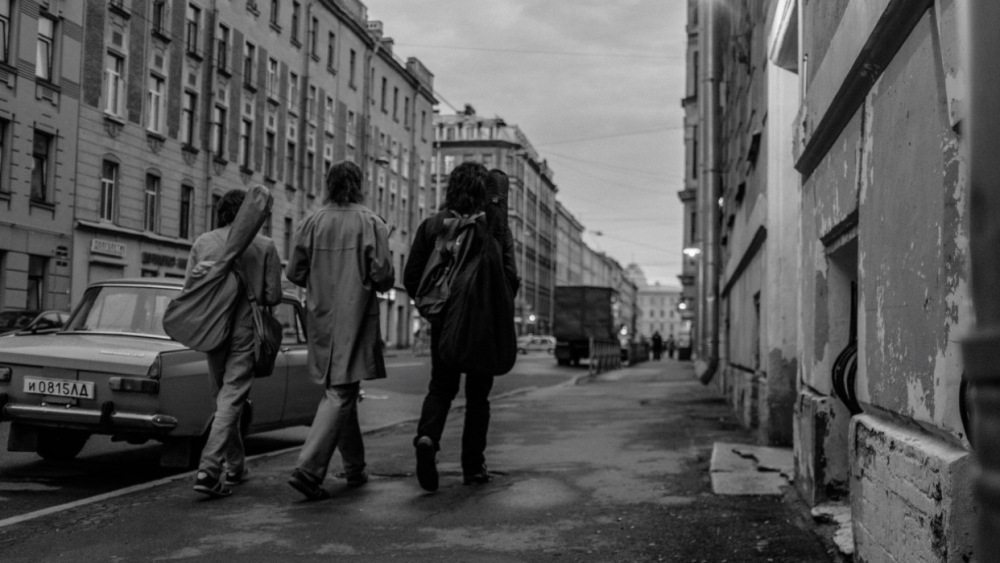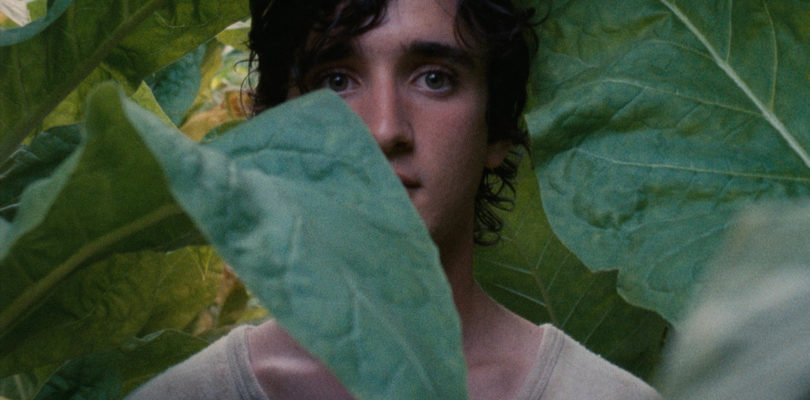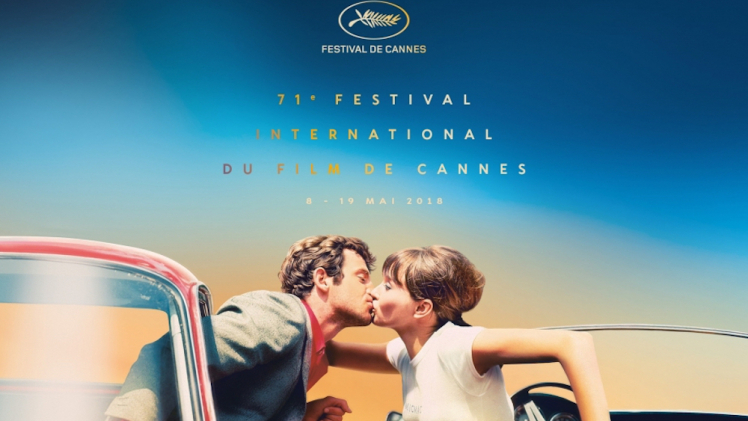Generally speaking, this year’s list of Cannes Competition contenders —announced at an upbeat press conference by Festival Director Thierry Fremaux— is an inspiring smorgasbord of world cinema. Still, the current industry climate(s) and some notable absences provided the more interesting informational titbits during and after the free-flowing conference held at the UGC Normandie on Paris’ Champs Elysées.
With 18 films selected, another two may be named soon, leaving hope that Lars Von Trier’s Cannes nazi-joke fatwa will be lifted, opening the door to The House that Jack Built or that Terry Gilliam’s Don Quixote will get out of rights dispute limbo in time for a trip to the Croisette.
Shutting down Le Festival
Among the known runners returning, there is Jean-Luc Godard with Le Livre d’Image (The Image Book). For the 8th time in competition, Godard will also have pride of place with another of his films providing the inspiration for this year’s stylish poster of Anna Karina and Jean-Paul Belmondo engaging in a classy clinch from separate automobiles. The film was Pierrot le Fou from his accessibly anarchistic period where he was merely re-inventing film grammar conventions and before he began digging deeper into the more inaccessible reaches of meaning, a transition entertainingly related in last year’s competition entry Le Redoutable. Almost anecdotally, that film also recounted how, in the heat of May 1968, Jean-Luc and his radical pals, François Truffaut et al, also were responsible for shutting down Cannes mid-festival on the charge of elitism, which led to the founding of the Directors Fortnight sidebar in 1969. Of which, more soon…

Politics in Cinema
So far, only two American films are included and, interestingly, two selected films from US “enemy” nations, Russia and Iran, are politically suspenseful insofar as their directors are forbidden from traveling: their films will be in Cannes but will they make the journey?
The first is Leto (The Summer) by the prolific theatre maestro, Kirill Serebrennikov. who has previously played a key official role in redefining arts policy in Russia under Medvedev. Currently under house arrest on spurious corruption charges he is decidedly out of favour, especially with culturally conservative Orthodox church influences close to Putin. Leto, a black & white opus about the rock music scene in 80s Leningrad as the USSR began its wane, will hardly thrill his detractors in a now-diminished Russia.

There is more hope, however, for Jafar Panahi to at last make the trip from Teheran, with Three Faces. Despite being banned from filmmaking —a strange concept if ever there was one— his films made during this prohibition have already in fact played in Cannes, notably the ironically titled, This is Not a Film, an autobiographical documentary, which suggests a certain fluidity in the autocracy of it all. According to Fremaux, Three Faces is a “feel-good Iranian road movie” about three actresses at different ages, which makes it sound like a shoo-in for next year’s Best Film Oscar. The French government are mediating.
Trois femmes …and then some
Another feminine trio also figures in the Cannes #71 line-up: (with the obligatory “only”) three women directors will be in competition this year, as last year. Anticipating the now perennial interpellation, Fremaux stressed that Cannes selection is based on the quality of films and not on an affirmative action quota principle, while underlining the grass roots changes taking place to rectify evident inequality, from the short term modifications of the Cannes selection committees that pre-screen and advise on the almost 2000 films submitted to the long term measures of ensuring balance at film school entry level.
Italian director Alice Rohrwacher returns after her Grand Prix success in 2014: Le Mervaglie (The Wonders) was an anarchically meandering narrative about alt-lifestyle bohemian beekeepers in rural Tuscany. Her new film Lazzaro Felice (Happy as Lazarus), while not science-fiction, reflects the perspective of a marginal man who travels through time.

In contrast with Rohrwacher’s improvised indiscipline style, there is French filmmaker Eva Husson whose Bang Gang-A Modern Love Story (2015), a tale of out-of-control teenage sexuality, which apart from a complacent ending, exhuded directorial confidence and calibrated control. Her new film Girls of the Sun, features the soulfully magnetic Golshifteh Farhani, as the commander of a squad of Kurdish women soldiers fighting to take back a town from extremist enemies; a stark contrast to her wistfully poetic role in Jarmusch’s Paterson at Cannes #69.
From the same neck of the woods, as it were, comes Lebanese Nadine Labaki with Carpharnaüm, “the voice of a child” who, through legal process, demands a decent life for the disinherited in protest against injustices to children in a dehumanised world. It is set in the nightmare of an unknown Middle-Eastern country in upheaval.
The second Official Selection, Un Certain Regard —also competitive and considered an ante-chamber for future Competition cineastes— further bears out the groundwork principle described by Thierry Fremaux. Six of the 14 initial films are directed by women, hailing from as far afield as Syria, Morocco, and for the first time, Kenya with Wanuri Kahiu’s first feature, Rafiki (Friend), a taboo tale of youthful sapphic love in a traditional society, a project Kahiu developed at two Cannes industry events, Producers Network and Cinemas du Monde. An active militant for breaking the mould of stereotypical themes in African cinema, her celebrated short, Pumzi, was a suspenseful science fiction story on the ecological theme of water scarcity with a female lead (available on YouTube).
Benicio Del Toro will preside the UCR jury and Cate Blanchett will helm the Official Competition jury.
Hit or miss?
On his first Competition trip to Cannes since his prime period with Do the Right Thing and Jungle Fever in ’89 and ’91, Spike Lee is eagerly awaited with BlacKkKlansman, featuring Adam Driver and Harry Belafonte and produced by the team that brought us Get Out. It is the unlikely but true tale of Ron Stallworth a black cop who goes undercover in the Ku Klux Klan. Off screen, look forward to Spikey comments about race politics.
Matteo Garrone, whose dark energy electrified the the Cannes screen with Gomorrah (2008) —picking up the Grand Prix du Jury and subsequently adapted to the successful TV series— is on the list with Dogman, whose trailer reassuringly suggests a return to the harsh aesthetic of Gommorrah after the less convincing Reality (2012) and the mystifying dud, Tale of Tales (2015).
A third arthouse-multiplex hybrid is Under the Silver Lake by David Robert Mitchell, who after the more than strange It Follows seems to move just a notch closer to the mainstream with his new film set in Los Angeles, with Andrew Garfield disappearing down a rabbit hole in a twisted quest of a now-you-see-me-now-you-don’t blonde siren. Garfield’s resemblance to Anthony Perkins only encourages the Hitchcock parallels and contrasts.
The politics of Cinema
Between defining good taste as with the renewed selfie ban on the red carpet (“…it slows down this unique parade of 2,500 and it’s simply not elegant…”) to the absence of prime Cannes fare from regulars, like Jacques Audiard’s American western, Xavier Dolan’s much anticipated first English language venture and Yorgos Lanthimos’ Irish-produced foray into English period drama, all of whom seem to have sidestepped Cannes glory to strategically position themselves in Autumn sprint for the Oscars.
More important to the long term is Cannes resistance to the movie business model changes first offered by Netflix et al, and now imposed by them. It is great to be able to see movies on TV whenever you want, but what about never having the choice to see major films in the meditative darkness of a cinema?
Netflix declined out of completion slots for its products, Alfonso Cuaran’s Roma and Orson Welles finally completed The Other side of the Wind. Netflix and Cannes both love cinema, but in different ways and for different reasons, it would seem.
So, between the buzz about the contenders, the non-selected and the no-shows, Cannes provides a useful snapshot cum user-guide of what’s happening right across 7th Art while throwing a useful spotlight on how the film industry reflects broader societal change.
See the full press conference at: http://www.festival-cannes.com/en/infos-communiques/info/videos/the-replay-of-the-2018-announcement-of-the-official-selection

